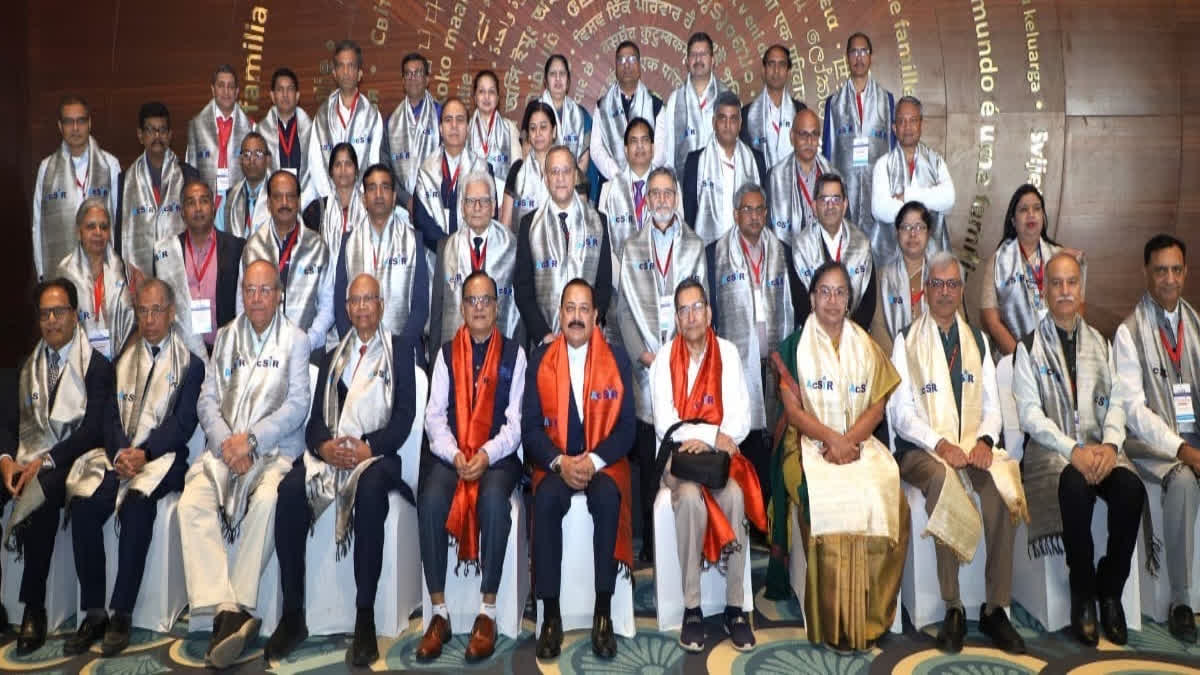New Delhi: Minister of State (Independent Charge) for Science and Technology Dr Jitendra Singh highlighted India’s emergence as a global leader in science and technology during the 8th Convocation of the Academy of Scientific and Innovative Research (AcSIR) on Friday. Speaking at the event, he emphasised that the country, under the leadership of Prime Minister Narendra Modi, is transitioning from being led by others to becoming a pioneer in fields like space technology, biotechnology, and innovation.
“From being led, India is today in a position to lead others across the world,” said Dr Singh. “This is amply demonstrated by our recent success stories, including breakthroughs in the space sector, vaccine development, and the CSIR-led Purple Revolution.”
The convocation saw four distinguished scientists being conferred Doctor of Science degrees for their groundbreaking contributions. Among them was Dr Raghunath A Mashelkar, a celebrated figure in polymer science, who was honoured for his pioneering research and leadership. Prof Samir K Brahmachari was recognised for his revolutionary work on repetitive DNA in health and disease, while Prof Suresh Bhargava received accolades for his contributions to chemical sciences and engineering. Dr. Thirumalachari Ramasami was celebrated for his research in chromium chemistry, which has advanced both academia and industry.
Dr Singh commended AcSIR for its role in propelling India’s scientific ascent, calling it “a torchbearer of a new academic culture in India.” He noted that AcSIR ranks among the top 3 per cent of global universities, despite being relatively young.
“This institution’s success lies in its unique model that blends traditional disciplines like engineering and biosciences with emerging fields such as medical research and agriculture,” he remarked. “AcSIR exemplifies the futuristic academic approach needed to achieve the vision of a ‘Viksit Bharat 2047.’”
The Minister also highlighted AcSIR’s innovative Integrated PhD (iPhD) program, which fosters entrepreneurship and sustainable startups. “The iPhD programme links innovation, imagination and industry from the very start of a student’s research journey,” he said. “It ensures that research translates into impactful startups, contributing to India’s rise in the global innovation ecosystem.”
India’s remarkable leap in the Global Innovation Index, from 81st to 40th, was a focal point of Dr Singh’s address. He attributed this progress to government initiatives and institutions like AcSIR that promote interdisciplinary learning and collaboration.
Celebrating advancements in the space and biotechnology sectors, Dr Singh stated, “India has moved from a handful of space startups to over 300, and the biotechnology sector now boasts nearly 9,000 startups. These successes underscore our leadership in the global innovation landscape.”
The minister also spotlighted the accomplishments of women in science, noting the historic appointment of Prof N Kalaiselvi as CSIR’s first woman Director General. “India’s woman power has always been at the foundation of our great achievements, and today, it is receiving the recognition it deserves,” he said.
Dr. Singh praised AcSIR’s alignment with the National Education Policy 2020, which offers students unparalleled academic flexibility. Sharing examples of students combining unconventional subjects like biotechnology and economics, he called it “a revolutionary step in Indian education.”
He further highlighted AcSIR’s international collaborations with institutions like the University of Western Australia and AIST Japan, asserting, “These partnerships validate the global excellence of Indian science and education. India no longer waits to adopt technologies; we are now leading their development.”
The convocation was graced by dignitaries, including Prof Ajay Kumar Sood, Principal Scientific Advisor to the Government of India, Prof N Kalaiselvi, Director General, CSIR, Prof Rajiv Bahl, Director General, ICMR and Prof P Balaram, Chancellor of AcSIR.
Dr Singh concluded by reinforcing India’s ambition to achieve a Viksit Bharat 2047. “India’s scientific journey is no longer about catching up, it’s about leading the way,” he declared. “AcSIR is not just an academic institution; it is a beacon of innovation and a key driver of our nation’s future.This convocation highlighted India’s growing scientific prowess and the government’s commitment to fostering a knowledge-driven economy, reaffirming its position as a global leader in science and technology."



